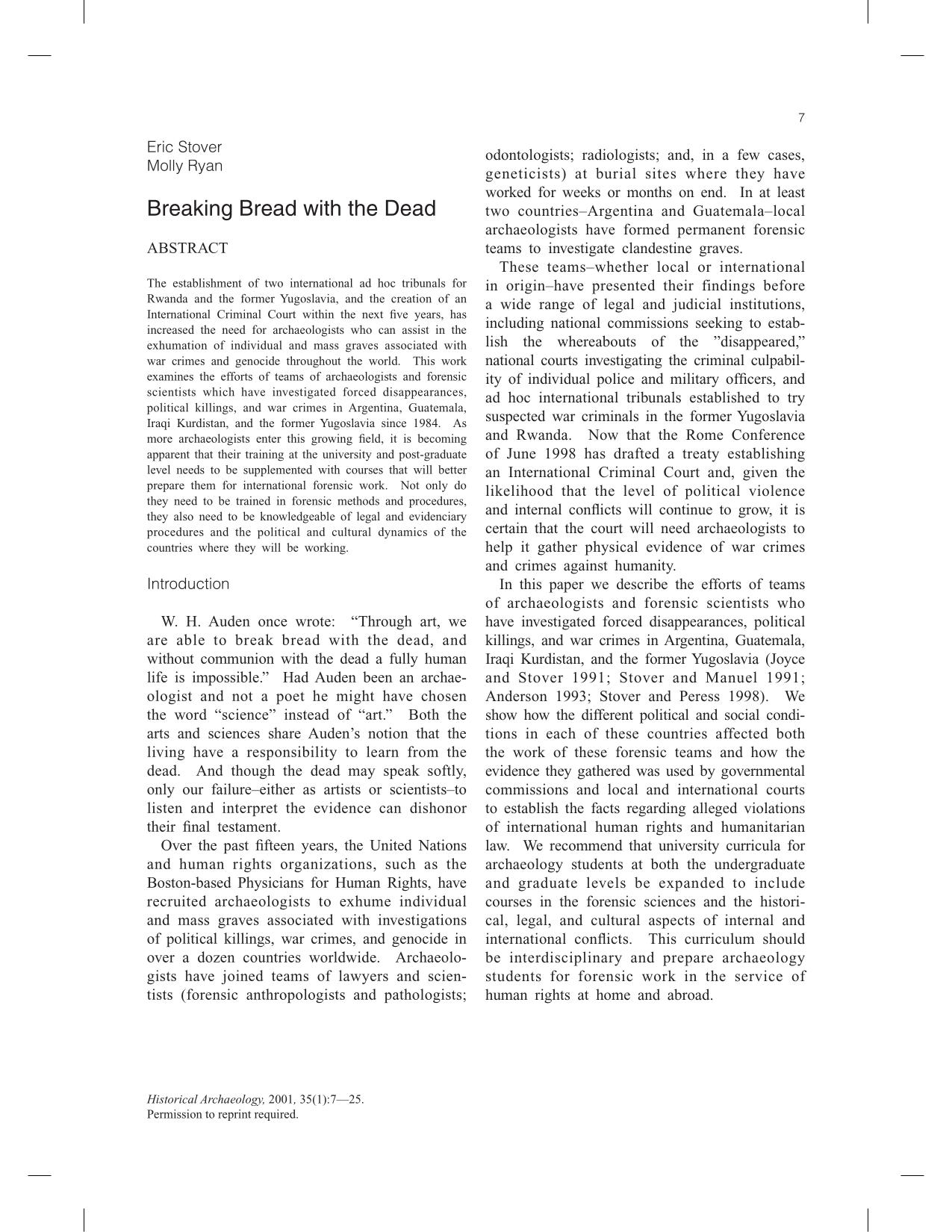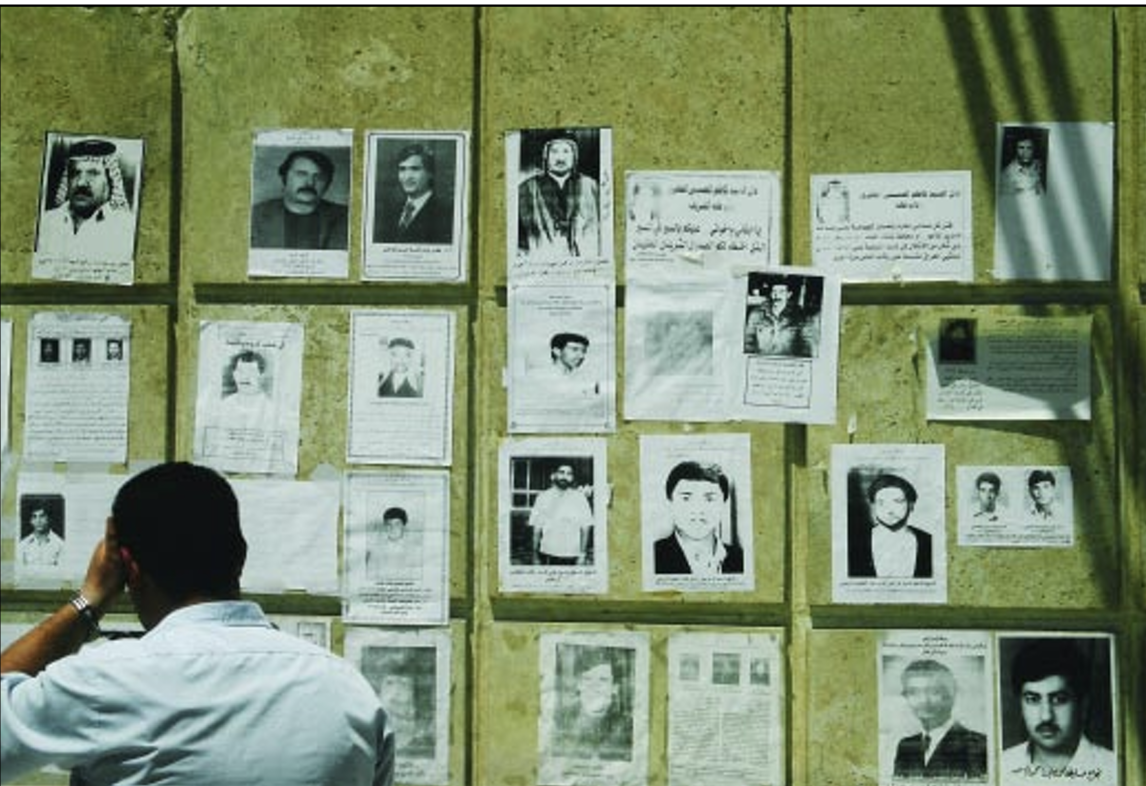Breaking Bread with the Dead
Summary
The establishment of two international ad hoc tribunals for Rwanda and the former Yugoslavia, and the creation of an International Criminal Court within the next fi ve years, has increased the need for archaeologists who can assist in the exhumation of individual and mass graves associated with war crimes and genocide throughout the world. This work examines the efforts of teams of archaeologists and forensic scientists which have investigated forced disappearances, political killings, and war crimes in Argentina, Guatemala, Iraqi Kurdistan, and the former Yugoslavia since 1984. As more archaeologists enter this growing fi eld, it is becoming apparent that their training at the university and post-graduate level needs to be supplemented with courses that will better prepare them for international forensic work. Not only do they need to be trained in forensic methods and procedures, they also need to be knowledgeable of legal and evidenciary procedures and the political and cultural dynamics of the countries where they will be working.

